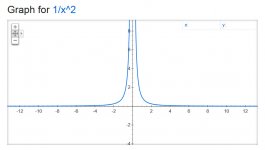hhtt21
Key Member
- Joined
- Jun 12, 2016
- Member Type
- Student or Learner
- Native Language
- Turkish
- Home Country
- Turkey
- Current Location
- Turkey
If the function blows at a point, the limit of function does not exist. As a phrasal verb or even a mathematical term, blow up is confusing to me. Which one is it in the link?
Definition of blow up
transitive verb
1 : to build up or tout to an unreasonable extent
advertisers blowing up their products
2 : to rend apart, shatter, or destroy by explosion
3 : to fill up with a gas (such as air)
blow up a balloon
4 : to make a photographic enlargement of
5 : to bring into existence by blowing of wind
it may blow up a storm
intransitive verb
1 a : explode
b : to be disrupted or destroyed (as by explosion)
c : to lose self-control; especially : to become violently angry
2 : to become or come into being by or as if by blowing of wind
3 a : to become filled with a gas
b : to become expanded to unreasonable proportions
c : to gain a large amount of weight
In the ensuing two years Gibson blew up to more than 400 pounds as he ate an over-abundance of fast foods … —Tim Crothers
4 : to suddenly become very successful, prevalent, or popular
Latin-tinged pop is blowing up because it fits the musical times: … —Christopher John Farley
https://www.merriam-webster.com/dictionary/blow-up
Definition of blow up
transitive verb
1 : to build up or tout to an unreasonable extent
advertisers blowing up their products
2 : to rend apart, shatter, or destroy by explosion
3 : to fill up with a gas (such as air)
blow up a balloon
4 : to make a photographic enlargement of
5 : to bring into existence by blowing of wind
it may blow up a storm
intransitive verb
1 a : explode
b : to be disrupted or destroyed (as by explosion)
c : to lose self-control; especially : to become violently angry
2 : to become or come into being by or as if by blowing of wind
3 a : to become filled with a gas
b : to become expanded to unreasonable proportions
c : to gain a large amount of weight
In the ensuing two years Gibson blew up to more than 400 pounds as he ate an over-abundance of fast foods … —Tim Crothers
4 : to suddenly become very successful, prevalent, or popular
Latin-tinged pop is blowing up because it fits the musical times: … —Christopher John Farley
https://www.merriam-webster.com/dictionary/blow-up
